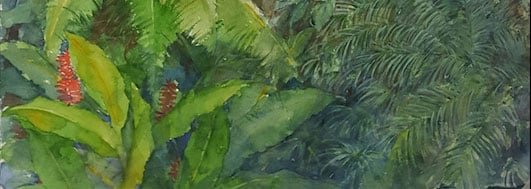::cck::148::/cck::
::introtext::
Although IPÊ was officially founded in 1992, the Institute has a much longer history.
In 1978, at age 32, Claudio Pádua left a successful executive career in Rio de Janeiro to dedicate himself to biology. This radical change included his wife Suzana Pádua and their three children. The family moved to the Pontal do Paranapanema in western São Paulo State, where Claudio undertook research with the black lion tamarin, one of the world’s most threaten primates.
From the start, Claudio understood that effective species conservation required the support of communities surrounding the tamarins’ forest home. Thus began the Institute’s environmental education work, headed by Suzana Pádua. Gradually, residents began to understand that tamarin conservation not only preserved the Atlantic Forest, already very much threatened, but also improved their own lives.
From the start, Claudio understood that effective species conservation required the support of communities surrounding the tamarins’ forest home. Thus began the Institute’s environmental education work, headed by Suzana Pádua. Gradually, residents began to understand that tamarin conservation not only preserved the Atlantic Forest, already very much threatened, but also improved their own lives.
Additional researchers and interns, who also believed in the interrelationship between conservation , environmental education and community involvement, joined Claudio and Suzana to formally create IPÊ. The Institute was initially headquartered in Piracicaba, São Paulo State.
Suzana is now IPÊ president and Claudio vice-president. The Institute is currently one of the largest environmental NGOs in Brazil and is recognized as a civic organization. It is now headquartered in Nazaré Paulista (São Paulo State) with a staff of over ninety professionals working in more than forty projects throughout Brazil. These include the Pontal do Paranapanema and Nazaré Paulista (São Paulo State), Ariri (São Paulo and Parana states), the Lower Rio Negro (Amazonas State), the Pantanal (Mato Grosso do Sul State), and a private area in Portel (Pará State).
The IPÊ model
IPÊ undertakes an integrated action model, developed through years of experience, that combines research, environmental education, habitat restoration, community involvement with sustainable development, landscape conservation and policy-making.
Respect for tradition
We respect community traditions in the places where we work and promote sustainable income alternatives for families in these regions, thereby decreasing human pressure on local biodiversity.
Transferring knowledge
Since its inception, IPÊ has emphasized communicating knowledge and research results. To this end, we continuously train our staff and offer opportunities and incentives to interns, many of whom continue to work with us after graduation. IPÊ relies on staff holding ten Ph.D. and twenty Master’s degrees. Many are also instructors in the Center for Brazilian Biodiversity Conservation (CBBC) and ESCAS – Escola Superior de Conservação Ambiental e Sustentabilidade (Graduate School in Environmental Conservation), a university created in partnership with Natura and Instituto Arapyaú.
::/introtext::
::fulltext::::/fulltext::
::ac_acordeon::1::/ac_acordeon::
::cck_ac_acordeon::acordeon::/cck_ac_acordeon::
::ac_titulo_acordeon|0|ac_acordeon::::/ac_titulo_acordeon|0|ac_acordeon::
::ac_texto_acordeon|0|ac_acordeon::::/ac_texto_acordeon|0|ac_acordeon::
::cckend_ac_acordeon::::/cckend_ac_acordeon::
::ac_arquivos::1::/ac_arquivos::
::cck_ac_arquivos::arquivo::/cck_ac_arquivos::
::ac_titulo_arquivo|0|ac_arquivos::::/ac_titulo_arquivo|0|ac_arquivos::
::ac_arquivo|0|ac_arquivos::::/ac_arquivo|0|ac_arquivos::
::cckend_ac_arquivos::::/cckend_ac_arquivos::
::ac_galeria::8::/ac_galeria::
::cck_ac_galeria::galeria::/cck_ac_galeria::
::ac_foto_descricao|0|ac_galeria::::/ac_foto_descricao|0|ac_galeria::
::ac_foto|0|ac_galeria::images/artigo_completo/galeria/1249/1.jpg::/ac_foto|0|ac_galeria::
::cckend_ac_galeria::::/cckend_ac_galeria::
::cck_ac_galeria::galeria::/cck_ac_galeria::
::ac_foto_descricao|1|ac_galeria::::/ac_foto_descricao|1|ac_galeria::
::ac_foto|1|ac_galeria::images/artigo_completo/galeria/1249/2.jpg::/ac_foto|1|ac_galeria::
::cckend_ac_galeria::::/cckend_ac_galeria::
::cck_ac_galeria::galeria::/cck_ac_galeria::
::ac_foto_descricao|2|ac_galeria::::/ac_foto_descricao|2|ac_galeria::
::ac_foto|2|ac_galeria::images/artigo_completo/galeria/1249/3.JPG::/ac_foto|2|ac_galeria::
::cckend_ac_galeria::::/cckend_ac_galeria::
::cck_ac_galeria::galeria::/cck_ac_galeria::
::ac_foto_descricao|3|ac_galeria::::/ac_foto_descricao|3|ac_galeria::
::ac_foto|3|ac_galeria::images/artigo_completo/galeria/1249/4.jpeg::/ac_foto|3|ac_galeria::
::cckend_ac_galeria::::/cckend_ac_galeria::
::cck_ac_galeria::galeria::/cck_ac_galeria::
::ac_foto_descricao|4|ac_galeria::::/ac_foto_descricao|4|ac_galeria::
::ac_foto|4|ac_galeria::images/artigo_completo/galeria/1249/5.JPG::/ac_foto|4|ac_galeria::
::cckend_ac_galeria::::/cckend_ac_galeria::
::cck_ac_galeria::galeria::/cck_ac_galeria::
::ac_foto_descricao|5|ac_galeria::::/ac_foto_descricao|5|ac_galeria::
::ac_foto|5|ac_galeria::images/artigo_completo/galeria/1249/6.JPG::/ac_foto|5|ac_galeria::
::cckend_ac_galeria::::/cckend_ac_galeria::
::cck_ac_galeria::galeria::/cck_ac_galeria::
::ac_foto_descricao|6|ac_galeria::::/ac_foto_descricao|6|ac_galeria::
::ac_foto|6|ac_galeria::images/artigo_completo/galeria/1249/7.jpg::/ac_foto|6|ac_galeria::
::cckend_ac_galeria::::/cckend_ac_galeria::
::cck_ac_galeria::galeria::/cck_ac_galeria::
::ac_foto_descricao|7|ac_galeria::::/ac_foto_descricao|7|ac_galeria::
::ac_foto|7|ac_galeria::images/artigo_completo/galeria/1249/9.jpg::/ac_foto|7|ac_galeria::
::cckend_ac_galeria::::/cckend_ac_galeria::


